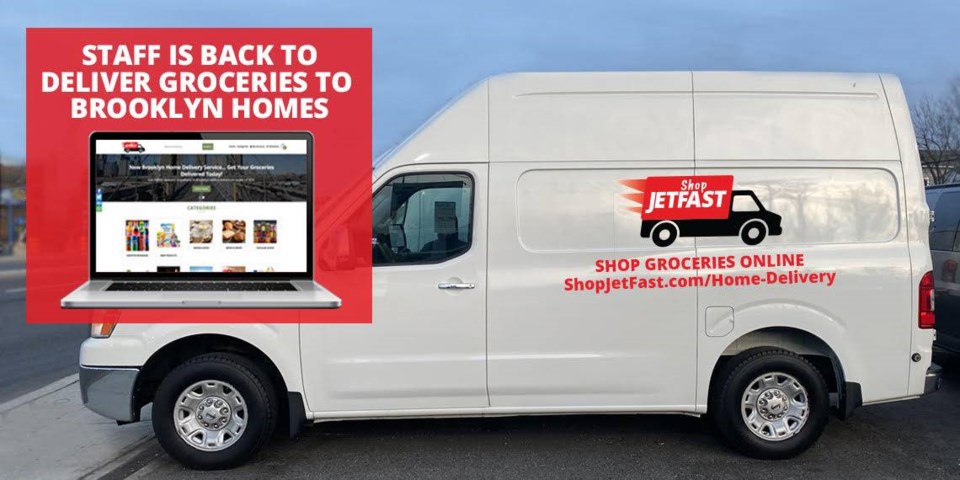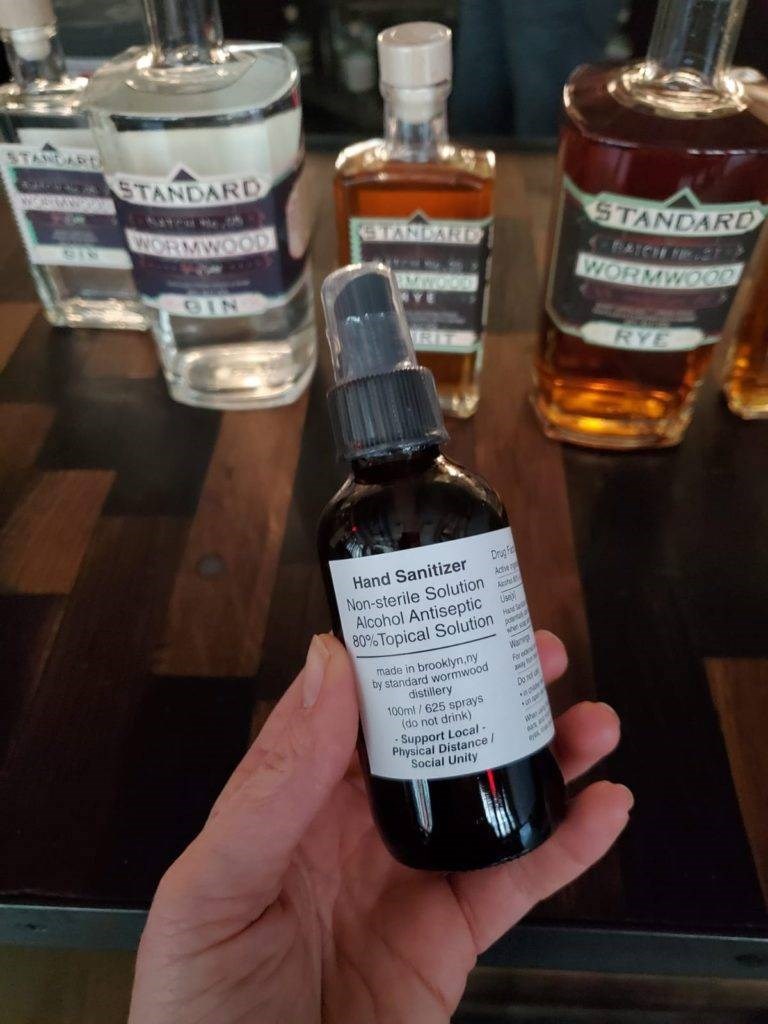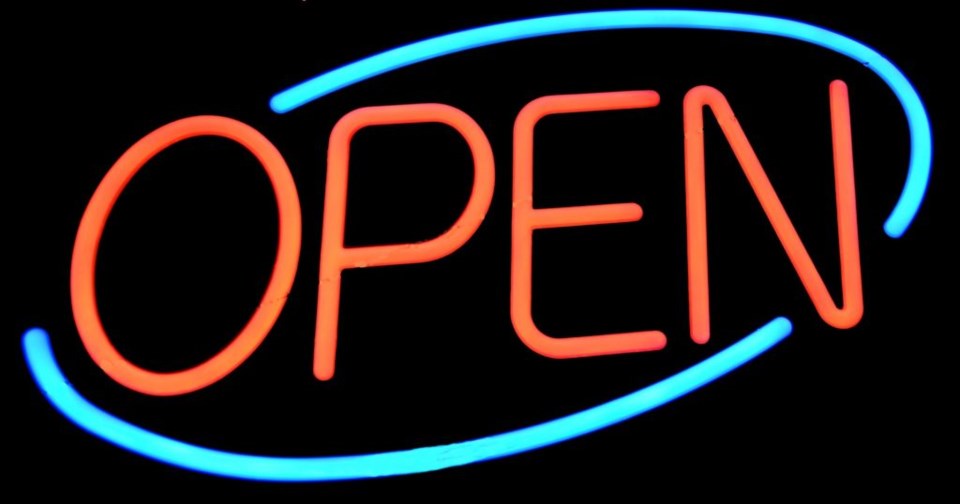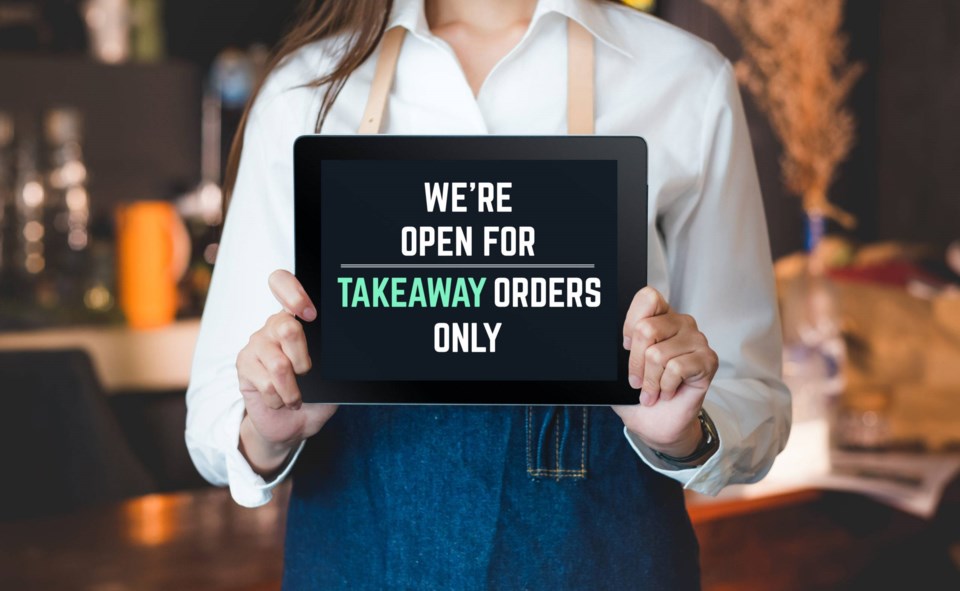Nasir Sarsour started the 2020 new year with a vision of taking his Brooklyn-based grocery foods delivery business, Shop JetFast, to the next level. The centerpiece involved a new app for his company to streamline how his customers—mostly restaurants and bodegas—would place orders.
The old system was a bit archaic. Chefs and corner store owners were faxing, texting or emailing their shopping lists. Sarsour often struggled to read the handwriting on faxed orders, which would delay his delivery process. He expected to begin a new chapter in his company's 15-year history with the app's hi-tech features.
"But then COVID-19 hit and put an end to everything," Sarsour told BKReader.
The pandemic forced restaurants, which represented about 70 percent of his customer base, to shut their doors under the state's shelter-in-place mandate.
What took years of hard work to build, the coronavirus threatened to topple in a few short weeks.
"At first, I didn't panic. I thought restaurants would be closed for about two weeks. But then, all of a sudden, it just kept going. Now it's been almost 60 days. That's when you start thinking, wow, what are we going to do now?"
Sarsour is far from alone. Indeed, COVID-19 crushed scores of businesses and pushed millions of newly unemployed workers to the brink of financial ruin.
As COVID-19 continues to ravish the economy, some companies remain standing—but are on life support. Others, like Shop JetFast, ultimately decided to pivot and reinvent themselves in this challenging business environment.

In April, Sarsour repurposed the app, originally intended for commercial customers, to meet the growing needs of people sheltering at home and concerned about contracting the virus while shopping.
Shop JetFast is now providing an essential food delivery service to residential customers in Brooklyn. At a time when other companies are experiencing delivery backlogs, Shop JetFast identified where there were gaps in supply to meet a growing new demand in food delivery.
Sarsour said Shop JetFast can bring groceries to customers either on the same day or the next. Other services can take as long as a 3 days to a week.
"We are Brooklyn-based, and want to make an impact here in Brooklyn," he added.
Factories pivot to fill manufacturing gaps
Fear and greed drove many people to horde protective products, such as hand sanitizer and masks, leaving shelves empty in stores nationwide. Many merchants saw this sudden demand as a prime opportunity to price gouge and sell the products at more than three times its retail value.

In response, dozens of Brooklyn-based companies pivoted and began to manufacture products that not only would help stem the spread of COVID-19, but offer a level of competition that would keep price gouging at bay.
For example, Bushwick-based clothing designer Zam Barrett quickly shifted gears to begin producing covers for N95 masks. The company's in-house factory uses mostly densely woven cotton fabric to manufacture masks with filters.
Also filling the gap were Industry City distilleries Barrow's Intense and Standard Wormwood Distillery, both of which quickly converted operations from making spirits to producing hand sanitizers. Standard Wormwood also told BKReader that it will donate 50 percent of the proceeds from its newly launched Vapour Scented Aromatic to help local bars survive the pandemic.
Expertise fuels a successful pivot
Some business owners are finding ways to simply leverage their know-how as an opportunity in these challenging economic environment:
Take Ingrid Murray, for example, whose mastery of the finer points of janitorial work helped her land a major contract.
Murray began running her husband's cleaning service in Prospect-Lefferts Gardens in 2011. She had the hustle and drive to steer the company toward larger profits, but the longtime accountant knew little beyond the basics of professional cleaning.
To shift from primary residential clients to land big commercial and government contracts, Murray joined professional janitorial associations and took academic courses.
"People think cleaning is just about using a mop and a broom," Murray told BKReader. "Before taking courses, I didn't know that chemistry was involved. I didn't know biology was involved."

Murray turned Prospect Cleaning Service into a successful company with a mix of private and government contracts.
However, the floor collapsed when COVID-19 struck.
"We lost almost all our private clients except for our medical centers and a construction company," she recalled, adding that she had to release most of her staff.
But Prospect Cleaning's story didn't end there.
Murray pivoted successfully by landing a new major contract with the MTA for its COVID-19 response initiative, sanitizing train stations on Metro-North lines. Her company now provides the essential service of cleaning, disinfecting and sanitizing surfaces at the train stations to halt the spread of the deadly virus.
"A lot of people don't know there's a difference between disinfecting and sanitizing. They just assume that once it's clean then it is sanitized," Murray said, explaining that the Environmental Protection Agency has released guidance and identified approved products that are effective against COVID-19.
One door closed but another opened
In response to the pandemic, nonessential businesses closed their doors and instructed employees to work from home. We Define IT, a tech support company based in Bedford Stuyvesant, initially lost a lot of its clients when the governor issued his shelter-in-place mandate.
But with scores of people now working remotely, We Define It Owner, Osayande Angazathere's, saw an emerging demand: home computer systems that still provide the high level of security business networks need.
"The remote working environment creates opportunities for hackers. People are doing work from home that would have been done on a secure system that their personal laptops don't have," he said.
Angaza added that there is also a high demand for content filtering.
"With schools closed, children are at home all day and know how to hide what they're doing online from parents and grandparents who ask us to block the kids from accessing certain sites," he said.

Bringing back employees
When the quarantine order first hit, Sarsour tried his best to pay his furloughed employees, at least, something to help them make ends meet. Many of them had not received a dime from the state's unemployment system that was overwhelmed and unprepared to manage the avalanche of new applications.
However, his pivot from commercial to residential customers has enabled him to rehire some of the workers he had to release.
As for Murray and her cleaning service, she too has been able to call back her staff. Even better, announced Murray on Facebook, the company needed to hire 50 new workers-- one assignment that brings a huge smile to her face.




